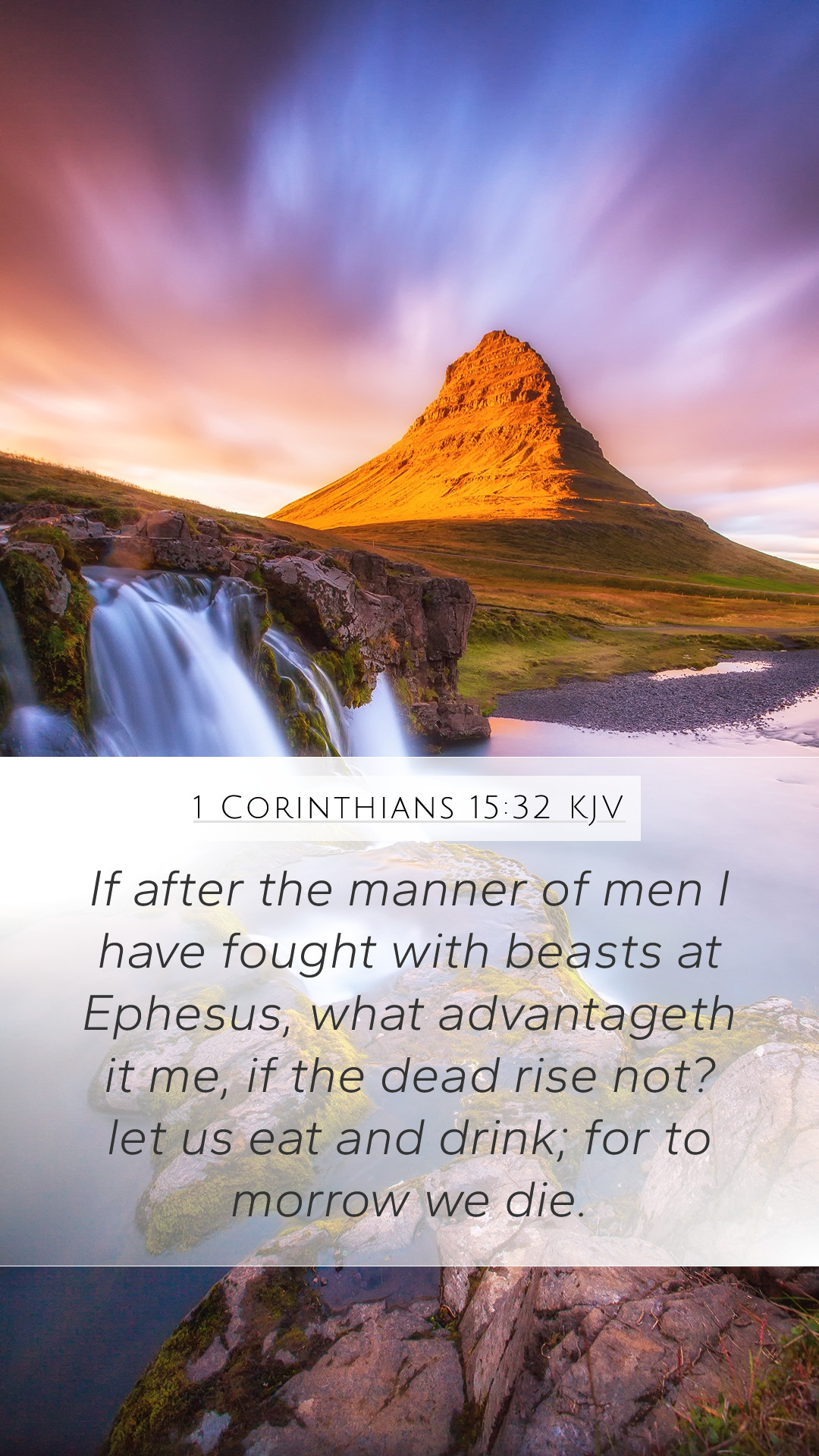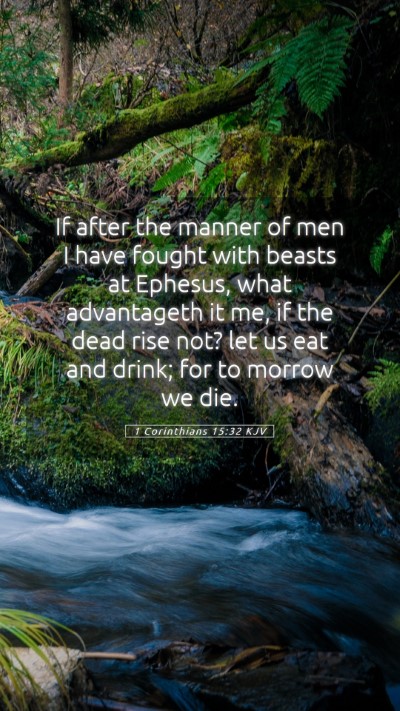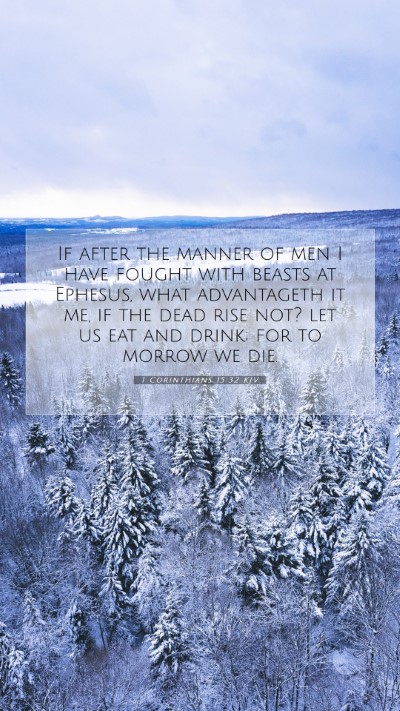Understanding 1 Corinthians 15:32
The verse 1 Corinthians 15:32 states: "If after the manner of men I have fought with beasts at Ephesus, what advantageth it me, if the dead rise not? let us eat and drink; for tomorrow we die." This verse invites profound reflection on the Apostle Paul's experiences, the implications of resurrection, and the reality of Christian faith.
Contextual Background
In this chapter, Paul addresses the resurrection of the dead, a fundamental Christian doctrine. He emphasizes the importance of resurrection in validating Christian faith and hope. The phrase "fought with beasts" is often interpreted as a metaphor for the intense struggles and persecutions Paul faced in his ministry.
Bible Verse Meanings
This verse highlights several significant themes that deserve careful examination:
- The Reality of Suffering: Paul likens his experiences to battling wild beasts, symbolic of the struggles faced in spreading the Gospel amidst hostility and danger.
- The Importance of Resurrection: Paul argues that if there is no resurrection, then his suffering and efforts are meaningless, giving rise to a nihilistic conclusion: "let us eat and drink." Without hope in eternal life, life’s struggles seem futile.
- A Call to Live with Purpose: By stating "let us eat and drink," Paul implicitly critiques a hedonistic worldview that dismisses the significance of eternity.
Insights from Commentaries
Matthew Henry's Commentary
Henry reflects on Paul's rhetorical approach to confront the false teachings about the resurrection. He posits that if the dead do not rise, one might as well indulge in earthly pleasures. Paul’s argument emphasizes that life's hardships have greater meaning when viewed through the lens of eternity.
Albert Barnes' Notes on the Bible
Barnes elaborates on the phrase "fought with beasts," underscoring that it may refer to either literal encounters or the figurative “beasts” of oppression he faced. He notes the absurdity of suffering for a faith that holds no hope for resurrection, arguing that such belief leads to a transient lifestyle devoid of spiritual aspiration.
Adam Clarke's Commentary
Clarke's analysis suggests that Paul uses this phrase to illustrate the extremity of his trials. He posits that Paul is asserting that if life has no resurrection, then we are utterly hopeless, urging Christians to recognize the profound implications of Christ's resurrection for their lives and choices.
Application for Today
The message of 1 Corinthians 15:32 resonates powerfully in contemporary life:
- Living with Eternal Perspective: This scripture invites believers to align their daily living with the hope of resurrection rather than indulging in momentary pleasures.
- Understanding Suffering: In times of trial, Christians can find strength knowing their struggles have divine purpose in light of eternity.
- Engaging in Faithful Ministry: Just as Paul fought valiantly for the faith, believers are called to persevere in their faith, knowing that their labor in the Lord is not in vain.
Related Scripture References
- 1 Corinthians 15:12-19: Discusses the centrality of resurrection in Christian faith.
- Romans 14:8: States that whether we live or die, we belong to the Lord.
- Philippians 3:10-11: Paul expresses his desire to know the power of Christ's resurrection.
- 2 Corinthians 4:17-18: Encourages believers by presenting current struggles in light of eternal glory.
- 1 Peter 5:10: Mentions suffering followed by restoration and strengthening from God.
Conclusion
1 Corinthians 15:32 serves as a critical reminder of the purpose and perspective Christians are called to maintain. Through understanding this verse, believers are encouraged to apply its lessons to their everyday lives, fostering a commitment to both the present spiritual journey and the hope of the resurrection to come.


